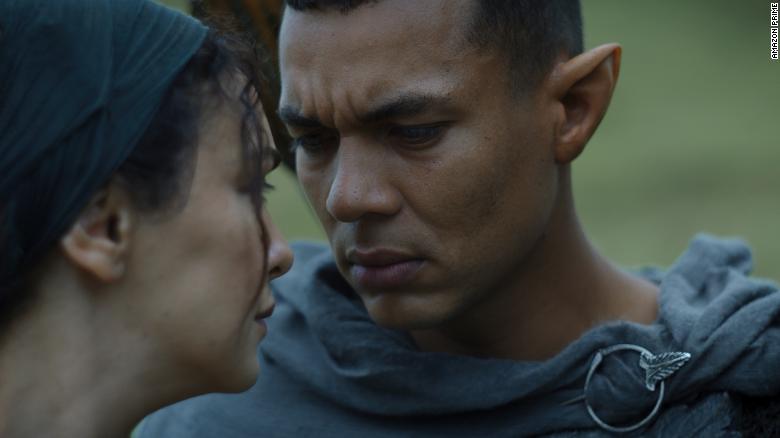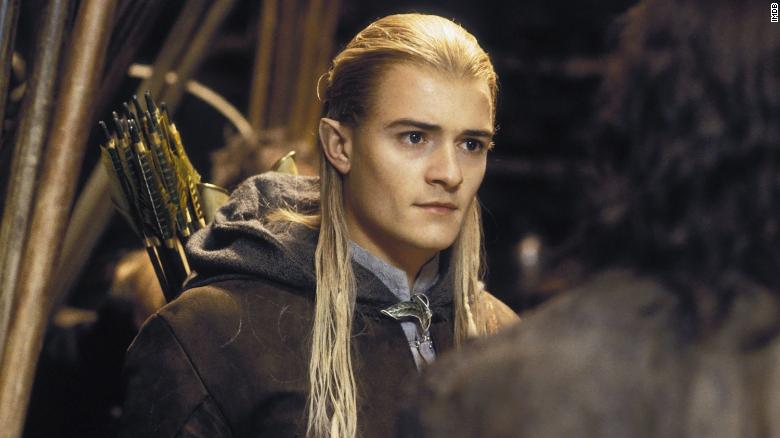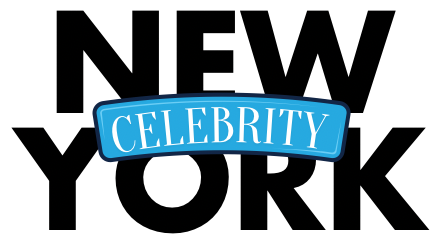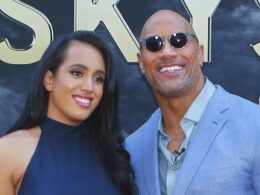Brandon Morse has read “The Hobbit,” “Lord of the Rings,” and extended versions of Peter Jackson’s “The Lord of the Rings” by J.R.R. Tolkien so frequently that “I can nearly quote them all line for line.”
But because TV programme creators have committed the following narrative crime, Morse is dreading a new addition to the Middle-earth canon that he claims “perverts and corrupts” Tolkien’s fantastical mediaeval universe:
They are attempting “The Lord of the Rings: “The Rings of Power,” a brand-new Amazon series, has been “woke-ified.”
Morse works as the deputy managing editor for the conservative news website RedState. He claims that in a story centred on European culture, the “The Rings of Power” producers cast non-White performers who look far different from how Tolkien originally envisioned them. It’s an effort, according to him, to incorporate “social justice politics” into Tolkien’s world.
According to Morse, who expressed his concerns in a passionate essay, “if you focus on integrating modern political attitudes, such as the leftist fixation with identity issues that just go skin deep, then you’re no longer working on constructing a compelling story.” You’re essentially creating propaganda, or art that tries to convey a message rather than the other way around.
The creators of “The Rings of Power,” which debuted Friday, assure fans that there will be many thrilling battles. However, some of the most significant conflicts related to the Amazon Studios series have arisen off-screen. Fans of Middle-earth and academics like Morse have debated this issue in internet forums and opposing op-eds. Is the addition of non-White actors a positive addition to the new series or a betrayal of Tolkien’s original intent?
The discussion can become heated because “Lord of the Rings” enthusiasts are known for having strong opinions about anything Middle-earth. Some followers even wonder if Tolkien was racist.
Some claim that the idea that all heroes are White men has been fostered through fantasy literature.

Inform Rev. Michael Coren, the author of “J.R.R. Tolkien: The Man Who Created the Lord of the Rings,” that some people fear the new series’ casting of non-White actors would destroy the mediaeval world Tolkien created, and you will receive a curt reply.
“That’s complete bulls**t,” he responds, “would be my most clever reaction.”
According to Coren, Middle-Earth is a work of fiction, not history. According to Coren, portrayals of Black and Jewish people in popular shows were frequently overtly racist and antisemitic when he was growing up in the United Kingdom.
Proto-Hobbit characters called Harfoots are played by actors Markella Kavenagh as Elanor “Nori” Brandyfoot, Sara Zwangobani as Marigold Brandyfoot, Dylan Smith as Largeo Brandyfoot, and Megan Richards as Poppy Proudfellow.
Saying no is no longer considered being awake, according to Coren. “This is just common sense, courtesy, and empathy,”
This conflict is a subset of a larger discussion over non-White, LGBTQ, and other non-traditional characters in science fiction and fantasy literature. According to critics, the assumption that only White men may be the hero and in command has long been institutionalised in the field of science fiction and fantasy.
In a recent interview, Black actor Steve Toussaint, who portrays a wealthy naval captain in the current “Game of Thrones” prequel, “House of the Dragon,” discussed how White fans have lambasted him for being chosen for the HBO series.
A dragon soaring has made them delighted, according to Toussaint. “With white hair and violet eyes, they are content. But a wealthy Black man? That is unacceptable.”
The creators of “The Rings of Power” cast several actors of colour as significant characters. One is the elf warrior Arondi, who is portrayed by the Latino actor Ismael Cruz Córdova. Cynthia Addai-Robinson is another; her father is from the US and her mother is from Ghana. She portrays Miriel, the Queen Regent.
As a child in Puerto Rico and a follower of Tolkien’s writings, Cordóva claimed he never encountered someone who resembled him in Middle-earth.
“In an interview, he stated, “And when I said, “I want to be an elf,” people remarked, “Elves don’t look like you.” “It seemed like a mission when I heard about the character on the show,” the author said.
According to some, Tolkien’s vision is betrayed by different casting
However, many who object to the casting of non-White actors in “Rings of Power” claim that their concerns are unrelated to racism. Being true to Tolkien’s vision is important.
Some point out that they have also attacked how White characters are portrayed in the programme, such the elf Galadriel, who has received criticism for not being sufficiently feminine.
Casting Black and brown performers in “The Rings of Power” jeopardises the plausibility of the narrative, according to Louis Markos, author of “From A to Z to Middle Earth with J.R.R. Tolkien.” For instance, he said that Tolkien depicted elves as “fair-faced.

He claims that using a non-White actor to represent an elf makes it more difficult for viewers to continue to suspend their disbelief.
The casting of brown and Black performers in the show, according to Markos, “is not something organic that’s flowing out of Middle-earth.” The agenda that is being forced on it is truly this.
RedState editor Morse wrote in his post that while “diversity isn’t a terrible thing by itself,” it becomes a major plot point when advancing an ideological agenda.
“People would naturally find this quite out of place if someone wrote a story about a magnificent African country of ancient, but one of the royals was White,” adds Morse. This would be a problem in particular if the tale had previously established that all the characters were black.
Other detractors voice their disapproval by using political correctness-related arguments. They use words like “forced diversity” to depict Amazon’s casting decisions as affirmative action descending onto Middle-Earth and threaten that the company would “go woke and go broke.”
Even the definition of what it means to be “awake” is up for debate.
A “woke” person is one who is “conscious and actively attentive” to systematic racial injustice and prejudice, according to the Merriam-Webster dictionary.
Morse offers a distinct interpretation. In his opinion, “wokeness” is a hard-left ideology that prioritises “shallow forms of identity to produce victims and oppressors” and places racial, gender, and sexual identity above other factors like character.
Some believe that Tolkien’s “faceless dark hordes” are racist.
No one associated with the series was made available for comment by Amazon Studios. But there are many supporters of the programme.
The irony is that some Middle-earth enthusiasts have little issue believing enormous, walking tree people and fire-breathing dragons, but “darker skinned dwarves are a touch far-fetched,” observes reviewer and comic Marc Burrows.
Some claim that the ancient world was not as white as “Lord of the Rings” devotees think. They claim that due to international trade, conquest, and migration, the ancient Europe that served as the inspiration for Middle Earth had a greater racial diversity than is often believed. Science supports them. Scientists recently revealed that the ancestors of current Britons, who lived 10,000 years ago, were not White but rather had “dark to black” skin and curly hair.

Defenders of the show also claim that Amazon Studios is simply being smart and not awake. Modern audiences no longer tolerate all-white casts. More than 240 nations are streaming “The Rings of Power.”
The Tolkien biographer, Coren, claims that “they want as many people watching as they can.” “So, it (diversity casting) is the proper thing to do on every level—morally, economically, and culturally.”
Others claim that by removing some of the underlying racism from Tolkien’s Middle-earth, Amazon Studios performed a public service.
The renowned Black author of science fiction and fantasy, N.K. Jemison, has attacked Tolkien’s portrayal of “orcs,” the dark-skinned, evil foot troops who threaten hobbits, elves, and other fair-skinned heroes. They are portrayed as “faceless savage dark hordes,” according to her, and they exist so that the good folks can “gleefully go genocidal on them.”
Consider it, Jemison urged. “creatures that resemble humans but aren’t actually people. People who aren’t deserving of even the most fundamental moral considerations, such as the right to exist. The only way to cope with them is to either completely subjugate them a la slavery or exterminate them all.”
What position did Tolkien take on race?
For years, harsh accusations similar to Jemison’s have been levelled at Tolkien’s writings. His protagonists are often White, whereas the antagonists are frequently shown as snarling, darker-skinned individuals. Naturally, this has raised questions about the author’s opinions.
Was Tolkien truly a racist? was a question posed by one essayist that has been raised often throughout the years.
According to John Garth, author of “The Worlds of J.R.R. Tolkien,” some racists hold this opinion.

For a very long time, Garth claims, “the extreme right has misinterpreted Tolkien as a representative of its own racial-supremacist ideals.” With the rise of populism and the dissolution of social taboos regarding what is appropriate to say, “they’ve really come out of the closet in the last few years.”
Tolkien was a White man who lived in early to mid-20th century England as a professor of Anglo-Saxon in a tweedy, essentially all-White milieu. But much as Tolkien noted about a mysterious Middle-earth hero, “not all those who travel are lost,” his past can be misleading. According to his biographers, he was not racist.
Garth claims that Tolkien publicly denounced discrimination based on race and ethnicity. He told a German publisher he regretted not having Jewish forebears and scolded him for asking if he was Jewish. He hated Nazi Germany because it was founded on racial and ethnic prejudice (Tolkien called Hitler that “ruddy little ignoramus”).
In a mid-century England dominated by Protestants, Tolkien was also a Roman Catholic and would have understood what it was like to be considered as a persecuted minority, according to Garth.

“Garth states, “He was born in South Africa and declared, “I carry the hatred of apartheid in my bones.
According to Coren, Tolkien’s biographer, the foundation of his well-known fantasy trilogy reflects the author’s embrace of all humanity.
The ability of many groups—elves, humans, hobbits, and dwarves—to work together and look past their outward differences drives the plot. Legolas the elf and Gimli the dwarf are two of the most appealing characters in the books, he adds, who end up becoming close friends despite a long-standing mutual mistrust between their two tribes.
Coren asserts that while Tolkien did discuss good and evil, he never connected the two.
The Middle-earth enchanted world is overshadowed by this controversy.
The most costly TV programme ever produced is supposedly Amazon’s “Lord of the Rings” series.
But what price will it have to pay for casting non-White performers in the lead roles? One of its most intriguing narrative turns in the upcoming months will be how fans respond.
Whatever happens, though, the controversy around diverse casting continues to throw a pall over this eagerly anticipated series.

Fantasy novels, films, and television shows attract fans in part because they provide an escape from the acrimonious conflicts of our real-world, prosaic existence.
The response to the new Amazon series, however, shows that political tensions are now present even in the magical realm of Middle-earth.
In “The Rings of Power,” the elves, dwarves, and humans might someday work together to combat a shared foe. However, the community of Tolkien enthusiasts is currently just as divided as the real world that so many of them attempt to flee.











